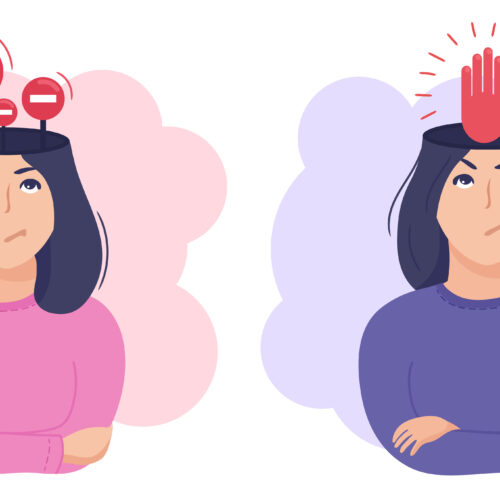Good leadership in the business world is often associated with concrete results. These fall into the arena of the WHAT: a strong vision, strategy, plans, and execution.
But even more important is the HOW: the way in which leaders guide their organizations and teams to achieve those concrete results in a cohesive, motivated fashion.
In today’s world, successful executive leadership largely depends on how effective we are at communicating and interacting with our diverse teams and clients. It’s no longer just about how well we can strategize or increase revenue.
Emotional Intelligence in the Fourth Industrial Revolution
“The most important thing in communication is hearing what isn’t said.” — Peter Drucker
After spending nearly 20 years in leadership roles, I understand the importance of Emotional Intelligence in shaping the leader I grew to be. Because the better you’re able to identify and manage your own emotions, as well as the emotions of others, the better leader you will become.
Emotional Intelligence begins with simply being aware of your own emotions and the emotions of others.
Dr. Ben Palmer, founder of Genos International, a leading provider of Emotional Intelligence assessments, defines EI as a “set of abilities that help us perceive and understand the way we feel and the way others feel…how effectively we regulate and manage emotions.”
The World Economic Forum 2020 ranks Emotional Intelligence as one of the top six skills needed to succeed in our current world.
Many top-ranking skills—like critical thinking, people management, and coordinating with others— are also connected to having a high emotional quotient.
Moreover, The Harvard Business Review explains that skills like persuasion, social understanding, and empathy are becoming stronger performance differentiators the more we work alongside AI and machine learning technologies.
The best and worst leaders you ever had
“People will forget what you said, people will forget what you did. But people will never forget how you made them feel.” — Maya Angelou
In the context of successful leadership, Emotional intelligence is about making intelligent responses to negative feelings and using specific skills to generate positive emotions in yourself and others.
One great way to help you imagine the kind of EI leader you want to be is to think of the best leader you’ve ever had. Then answer these questions about her or him:
- How well did they demonstrate awareness of their mood and emotions?
- Did they make others feel appreciated?
- Were they open and honest about mistakes?
- Did they make ethical decisions?
- Did they manage their emotions effectively in difficult situations?
- Did they recognize others’ hard work and achievements?
Now, recall the worst leader you’ve ever had, and ask yourself these same questions.
These opposing leaders likely shaped who you are as a leader today, even if you’re not fully aware of it.
The way we show up and choose to behave determines how others feel. How others feel determines how much they engage with us. And the extent to which they engage determines whether the outcome is inspiring or discouraging.
How you handle career ups and downs as a leader
We all go through cycles of ups and downs in our careers. It’s easy to let them affect our emotional well-being.
But EI helps us see these cycles as simply part of life, rather than allowing them to define who we are. It drives resiliency and progress.
At the end of each cycle in my career, I reflect on the overall process with these questions:
- What am I most proud of accomplishing with the team?
- What was the toughest challenge we faced, and how did we overcome it?
- What have I learned or could have done better?
- What would I have done differently?
In business, there is a lot of necessary thinking around hard and fast results—the vision you communicate, the strategy behind it, the plans designed, the results accomplished.
To assess my leadership development, I always heavily consider how I performed as a leader:
- How was I as a team leader? Was I thoughtful, honest, patient, and attuned to my team’s needs?
- Compared to past cycles, how am I evolving as a leader?
- Based on how I am maturing as a leader, will I be the leader I envisioned myself to be for my organization? If not, how can I get on track to do that?
For now, I’d just like you to reflect on the questions I’ve presented here. Consider how they may help you on your own leadership journey.
And maybe send a little note to the best leader you ever had! Let this person know how integral they’ve been in your career. I’ve done this myself, and I can tell you how great it feels to reach out in this way.
Stay tuned for my upcoming blog series, where I explore in-depth the most important aspects of Emotional Intelligence for leadership.





